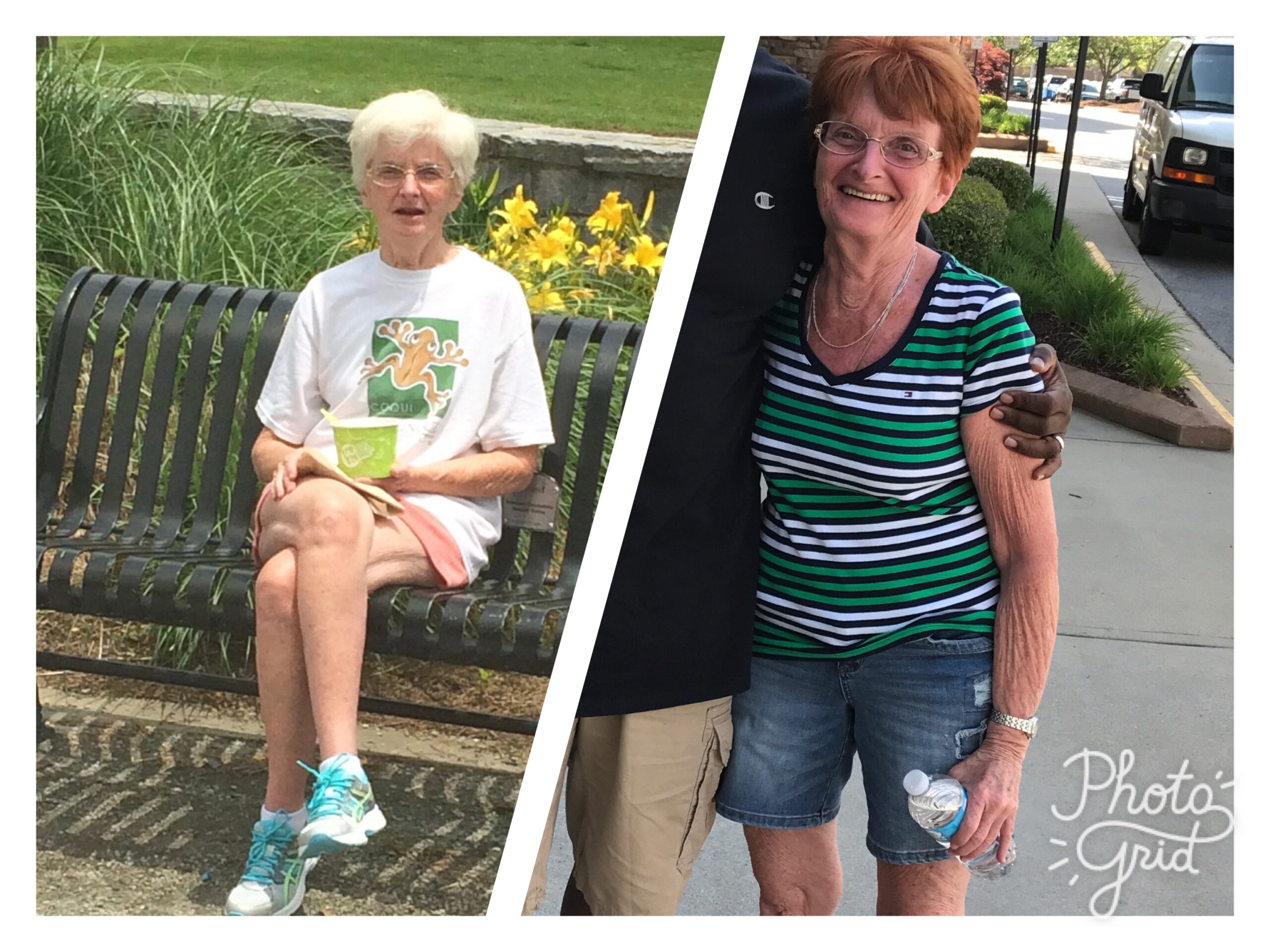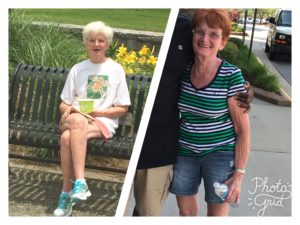
We all know that being there for our families is non-negotiable. And we know that family caregivers will do whatever it takes to ensure their loved ones get care. This November, which is National Caregiver Month, we will be honoring all the hard work caregivers do, in good times and bad, by sharing profiles of family caregivers from the Caring Across Generations activist network.
Sharing our experiences is a powerful way to break through the isolation that so many caregivers feel and connect with the millions of other people doing this work every day. (There are about 40 million family caregivers in the United States!) That’s why we would love to hear from YOU!
Do you have a care experience that has altered the course of your life? Is there anything in this and the other profiles that speaks to you? Do you see yourself, your feelings, or your own experiences? If so, what is it?
You can leave a comment or you can send an email to our National Membership Organizer, Vanessa Faraj, vanessa@caringacross.org
Our first caregiver profile is of Heather Olgelsby from Atlanta, GA. Heather is the caregiver of her mother who has Alzheimer’s. She came to our National Gathering in September, 2017.
It is absolutely no surprise that Heather see so much of herself in Wonder Woman.
Heather grew up in poverty and watched her family fight for everything they have. She felt the brunt of what she terms “social injustice.” Going through that and watching how her family had to struggle and fight, even with the various systems that were supposed to help, has primed her to “test the limits and fight.”
She is now a professional with the Centers for Disease Control and has worked on humanitarian efforts with a wide range of people including homeless people, people in prisons, at-risk children, and people in overseas refugee camps. She is passionate about exercising outdoors and loves biking, hiking, and snorkeling and she loves the opportunities to learn new things about human beings and herself that come from experiencing life in culture different from the one(s) in which she grew up.
Heather, who is now in her third year of caring for her mother, came to caregiving in a moment of crisis. Her mother had gotten “so bad she was sleeping in her car, got evicted, pipes froze and flooded in her house and she had nowhere else to go. Someone found her and took her to a shelter.”

Like many caregivers, she found taking on this responsibility difficult. “In my heart I was terrified. I didn’t know how bad it was going to be. My life has been turned upside down.”
But as she did the work, she drew on her experiences growing up and knowing how to fight, and connected with the journey of pop culture heroes like Wonder Woman. “She reminds me of caregivers and how we fight. My mom is a Wonder Woman and I am my own Wonder Woman! My mom has been impacted by a disease that is not cureable but she keeps living. And at first I thought I was dying. I felt like a victim. But as I got through this and found my way, I realized I am also a Wonder Woman.”
But even superheroes can’t do it alone. Heather needs and gets support from other people in her life, while also trying hard to take care of herself. Her husband, family, and dog are all part of her support system and she also takes strength from what she’s doing for her mom, secure in the knowledge that she’s giving back to someone who has played a major role in her life.
She also finds strength and support in her spiritual life, carves out time for exercise, and invests time and energy in writing about her caregiving experiences at her blog, Caregiver Spotlight. She calls is a form of “self-efficacy. I feel like I am processing and validating who I am in this world, what has shaped me as a human being, and giving back to the caregiver community. It helps give others who are struggling strength.”
And, of course, outside validation helps too. “So many people have thanked me for the work I have done and that makes me feel good.”
For Heather, though, while all these things help keep her sane, they don’t ensure that all caregivers, no matter who they are, can be there for their families, no matter what. Nor do they lessen or ease the actual work she must undertake to care for her mom.
Elected officials set the rules for how caregiving works and how we invest in strong families and communities. They should not be making caregivers face the impossible choice of being there for our families or sacrificing our own economic security, retirement, and/or health. But the reality is that millions of us face this choice every time we get sick or have a family member who needs care.
This is especially true in Georgia, a state that has resisted every opportunity to invest in strengthening families and building strong communities in which they can thrive. The state has paltry resources for caregivers, which, in turn, leaves them facing almost impossible choices. That’s why Heather is adamant that caregivers need a strong voice.
As she says, “I grew up in poverty and I watched social injustice. The issues caregivers face are a social injustice. I watched my family fight for everything they have. I will always test the limits and fight.”
As we said, it’s no surprise that Heather sees so much of herself in Wonder Woman.
Here’s the full interview with Heather.
Can you tell me a bit about yourself – what work you do (or did), what are you passionate about, what you value and believe in?
I work for the Centers for Disease Control. I am passionate about humanitarian efforts no matter what the population is. I have worked with the homeless, people in prisons, children, and have also worked overseas. I am passionate about exercise. I love mountain biking and snorkeling. I also love being around different cultures. I have worked in refugee camps in Nairobi [in Kenya], in Egypt, backpacked in the mountains of Romania to distribute food to rural communities. Now that I have been thrown into a personal experience this is a new world for me, especially around caregivers and the sacrifices they make and how to be whole in a very difficult situation.
Who do you care for and how long have you cared for them?
Mom has Alzheimer’s and I have been taking care of her going on three years. Her cognitive functioning got so bad she was sleeping in her car, got evicted, pipes froze and flooded in her house and she had nowhere else to go. Someone found her and took her to a shelter. I knew in my head I had to get this sorted out. I was so confused — she had been independent. In my heart I was terrified. I didn’t know how bad it was going to be. My life has been turned upside down.
What are some of your favorite tv shows or movies?
Wonder Woman! It reminds me of caregivers and how we fight. My mom is a Wonder Woman and I am my own Wonder Woman! My mom has been impacted by a disease that is not curable but she keeps living. At first I thought I was dying. I felt like a victim. As you get through this and find your way you realize you are a Wonder Woman.
I love HGTV. I especially love Caribbean life. Travel channel. Food network — really light shows that detach me from the stressors of life.
What are some of your favorite singers or musicians?
If I am working out, I love Bruno Mars and old school Beyonce. If I am taking a break and in my house, Enya and relaxing, spiritual music.
What do you like to read when you have time?
I am more of a writer than I am a reader. www.Caregiverspotlight.blog. It is a form of self-efficacy. I feel like I am processing and validating who I am in this world, what has shaped me as a human being, and giving back to the caregiver community. It helps give others who are struggling strength.
What keeps you sane?
Faith and hope. Fighting back. I have always been a fighter, life has not been easy for me. I am spiritual and have a prayer life. God, my family, my husband, my dog, my mom (knowing I am giving back to someone’s life) all keep me sane. Exercise, and concentrating on my health and wellness. So many people have thanked me for the work I have done and that makes me feel good.
Why do you want to be a caregiving advocate? Why should another family caregiver reading this also become a caregiving advocate?
I grew up in poverty and I watched social injustice. I watched my family fight for everything they have. Growing up poor, I was socialized to fight systems. The issues caregivers face are a social injustice. I will always test the limits and fight. When I start seeing the results of fighting I know this is a system issue. People do not know how to fight back.
###